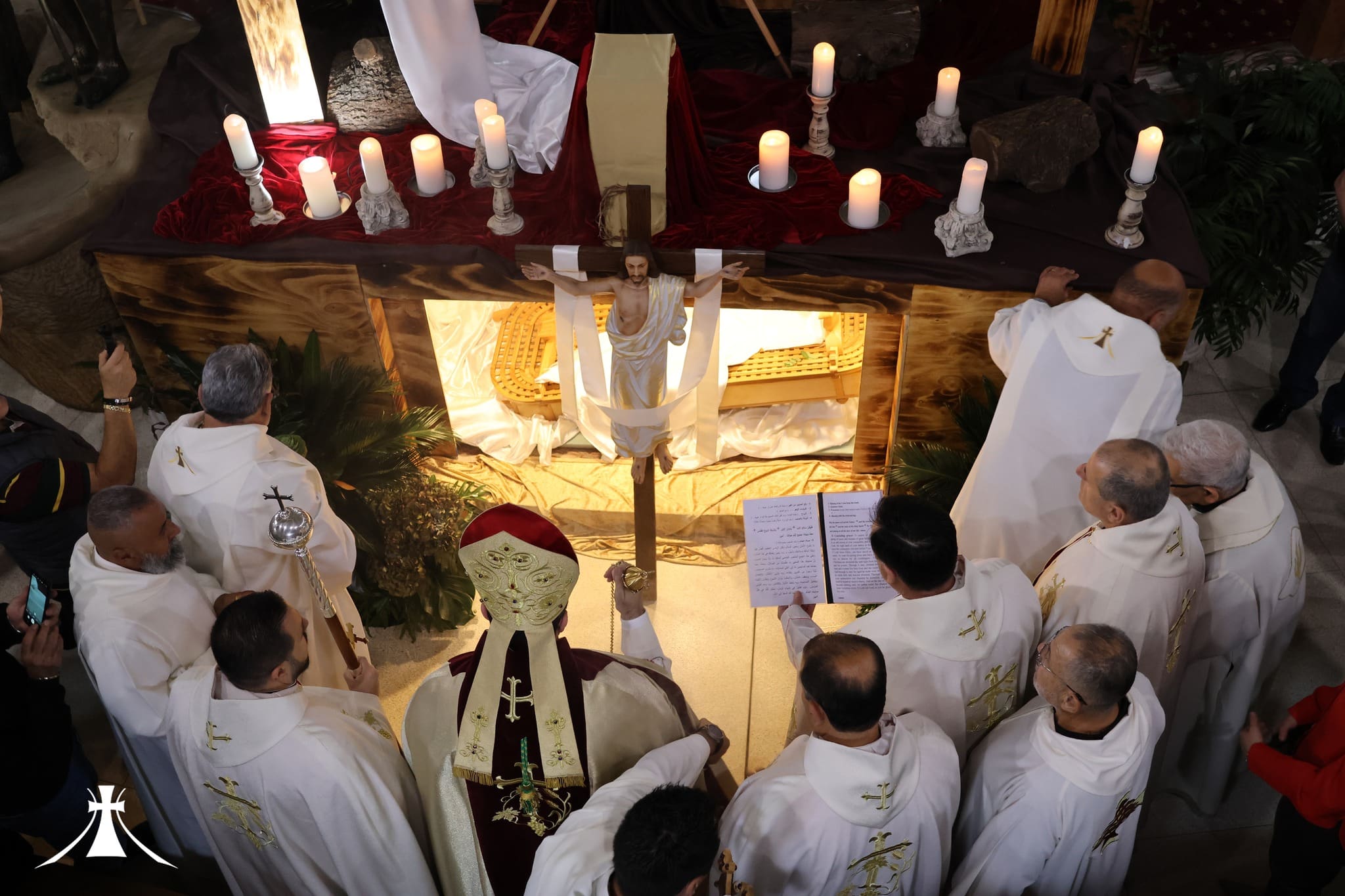
By Dr Margaret Ghosn mshf
The week after Resurrection, according to the Maronite Lectionary, is titled ‘New Sunday’ and the readings are taken from Isaiah 52:7-12, 2 Corinthians 5:11-21 and John 20:26-31.
It is also Divine Mercy Sunday.
In the Maronite Lectionary the title ‘New Sunday’ is based on the understanding that Jesus’s death and resurrection have forever altered all things.
We now start anew, afresh, living as people of the Resurrection. The Maronite Lectionary dedicates seven weeks to the Season of Resurrection with the Sunday Gospels focussing on the appearance of Christ to the disciples.
Each encounter is a reminder that Christ lives, love has conquered death, and we are called to live in this fullness, as we read in 2 Corinthians 5:17: “So if anyone is in Christ, there is a new creation: everything old has passed away; see, everything has become new!”
This new Sunday is also Divine Mercy Sunday with its valuable message of divine love—which alone endures, empowers and emboldens. It is no coincidence it falls on Sunday after the death, burial and resurrection, for it reminds us that only one thing saves and endures – God’s divine love.
Our Gospel for this New Sunday ends with the verse, “that through believing you may have life in his name” (John 20:31). That is the ultimate invitation – to have life. Death is no more. Love endures. And with this knowledge we adopt a whole new perspective on life and how to live it. As our reading in 2 Corinthians 5:20 states: “so we are ambassadors for Christ.”
In this New Sunday mass, the celebrant prays in the Prayer of Forgiveness to the “Son, who filled the universe with a new light by his glorious Resurrection’” Yes, it is a new light, a new dawning, and a new day. The lyric of the hymn that follows declare:
In truth, I am Light from Light.
From a sea of brilliant light
My day dawns majestically.’
A majestic Resurrection that leads to a genuine new life never before experienced – hence a New Sunday. It remains continuous with the past because we have lived that past. But it is now a new life because it has never been so radically lived as it is now. It is worth reflecting a little deeper on how this New Sunday impacts our Christian lives as Easter people.
Life after the Resurrection is a new life in the light of hope. Injustice, suffering and death did not have the final word. It was the Resurrection that brought light into darkness. A new day and a new era have dawned. Hope is real, peace reigns in hearts and minds, and love is the most powerful of all.
Our lives are now lived as people who walk in the light, and who live according to the principle of unconditional love. As the celebrant at Mass prays, “Make us worthy to celebrate this New Sunday with joy and gladness.”
After the Resurrection it is no longer acceptable to live regretting the past, daydreaming through the present, nor despair a future that has not arrived. Rather this new Sunday calls us to confidently journey forward, open to possibility and imagination and so bringing the Good News into existence.
As our Old Testament Reading proclaims: “How beautiful upon the mountain are the feet of the messenger who announces peace, who brings good news, who announces salvation’ (Isaiah 52:7).
New Sunday may seem very ordinary and just like any other day and it is. Physically and materially, things are the same. But our perspective has changed.
We see now with the light of the Resurrection and knowing that God is and always will be forever. So, with Thomas in this Sunday’s Gospel passage according to the Maronite Lectionary, we ask for deep transformation, an open heart and a mind willing to see all things in a new light.
Dr Margaret Ghosn mshf is Executive Principal at St Maroun’s College (Marrickville) and Maronite College of the Holy Family (Harris Park)
